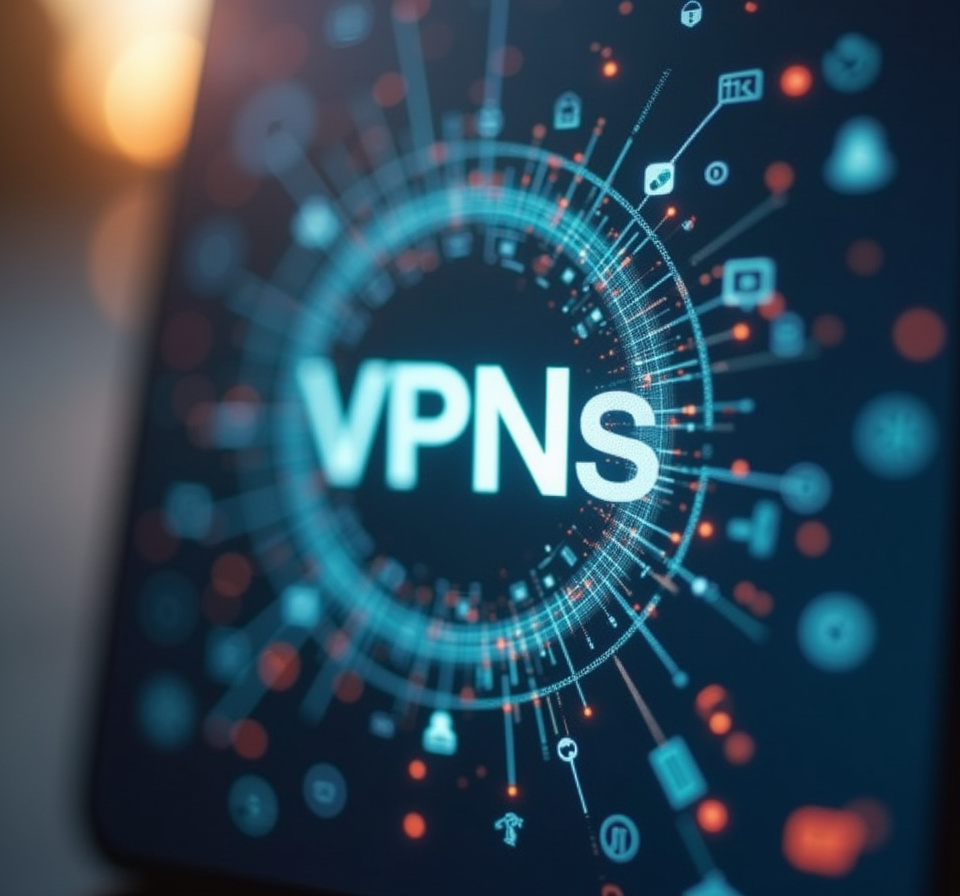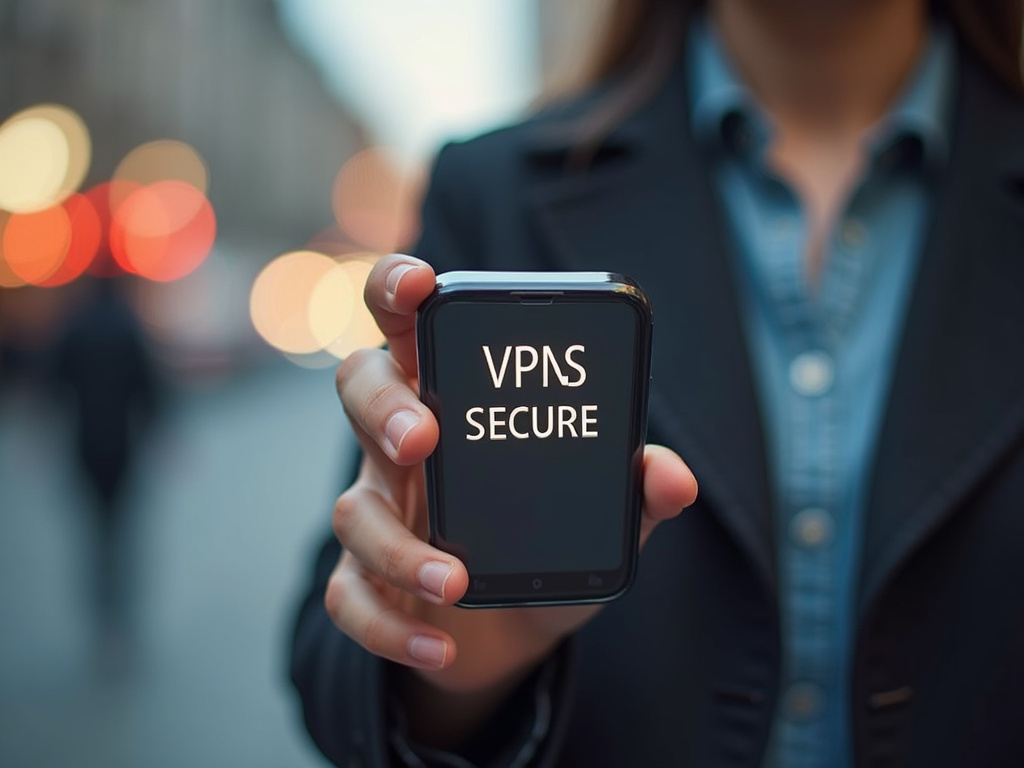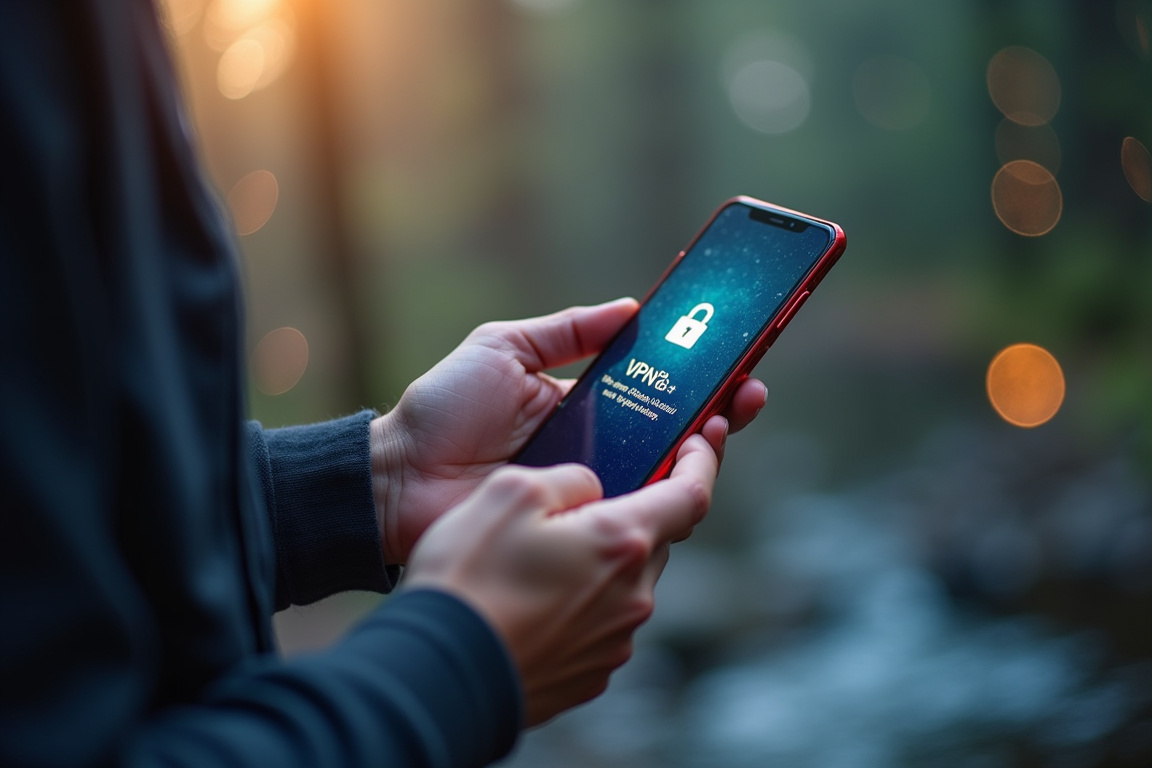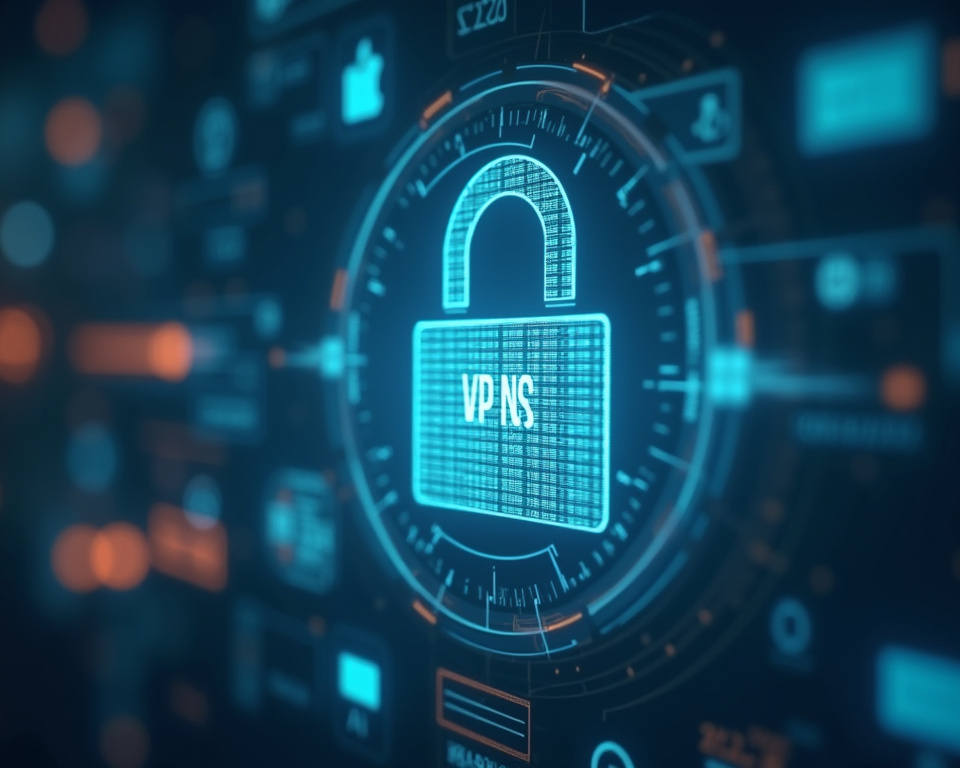VPNs for Meditation Apps: Securing User Sessions

Table of Contents
Introduction: Protecting Your Inner Peace Online
The digital age has ushered in a new era of wellness, with meditation apps leading the charge in providing accessible tools for mental and emotional well-being. These apps offer a diverse range of resources, from guided meditations and mindfulness exercises to sleep stories and ambient soundscapes, all designed to promote relaxation, reduce stress, and enhance overall mental clarity. However, the use of these apps isn't without its privacy considerations.
Users often share deeply personal thoughts, feelings, and experiences within these digital spaces, making the security of their data paramount. This article delves into the critical role of Virtual Private Networks (VPNs) in safeguarding user sessions and protecting personal information when utilizing meditation apps. We'll explore how VPNs function as a vital shield, ensuring privacy and fostering secure app usage, allowing individuals to focus on their inner peace without the worry of potential data breaches or intrusions.
In essence, this is about ensuring that the peaceful sanctuary offered by meditation apps isn't unintentionally compromised by the ever-present risks of the online world. Meditation apps, by their very nature, collect and process sensitive user data. This data can range from basic information like email addresses and usage patterns to more intimate details such as personal reflections shared during guided meditations, sleep logs, and even biometric data collected through wearable devices connected to the app.
While many app developers strive to protect this data through encryption and security protocols, vulnerabilities can still exist. Data breaches, insecure servers, and even intentional data collection practices can expose user information to unauthorized parties. This is where the integration of a VPN becomes crucial.
A VPN creates a secure, encrypted tunnel between the user's device and the VPN server, masking the user's IP address and effectively anonymizing their online activity. All data transmitted through this tunnel is encrypted, rendering it unreadable to anyone attempting to intercept it. When applied to a meditation app, this means that the user's meditation sessions, personal reflections, and other sensitive data are protected from prying eyes, whether those eyes belong to hackers, ISPs, or even the app developers themselves.
The benefits of using a VPN with a meditation app extend beyond simple data encryption. A VPN enhances session security by preventing man-in-the-middle attacks, where malicious actors intercept data as it's being transmitted between the user's device and the app's servers. By encrypting the connection, the VPN makes it significantly more difficult for attackers to succeed.
Furthermore, a VPN can help users circumvent geographical restrictions or censorship that may prevent them from accessing certain meditation content. By connecting to a VPN server in a different location, users can bypass these restrictions and access the content they desire. Beyond the technical aspects of security, VPNs foster a greater sense of user privacy and control.
Knowing that their data is protected by encryption and that their online activity is anonymized allows users to engage more fully with the meditation app without constant concern about potential surveillance. This peace of mind can be particularly valuable for individuals who are using meditation apps to address anxiety, stress, or other mental health concerns. The feeling of being secure and protected can contribute significantly to the overall effectiveness of the meditation practice.
Ultimately, the synergy between meditation apps and VPNs offers a powerful combination for promoting digital wellness in a safe and secure environment. It's about empowering users to take control of their privacy and data security, allowing them to focus on their mental and emotional well-being without the distractions and anxieties associated with the digital world.
Why Meditation Apps Need VPNs: Addressing Key Security Risks
Selecting the right VPN for use with meditation apps is a decision that shouldn't be taken lightly. The market is saturated with VPN providers, each offering a variety of features and security protocols. Navigating this landscape requires a discerning eye, focusing on key criteria that directly impact the security and privacy of your meditation sessions.
To begin, a deep dive into a VPN’s encryption standards is necessary. Encryption is the backbone of any VPN service, and the stronger the encryption, the more secure your data will be. Look for VPNs that utilize AES-256 encryption, which is widely considered the industry standard for its robust security and impenetrability.
Lesser encryption standards may leave your data vulnerable to interception and decryption. Also investigate the types of VPN protocols that the VPN offers, with WireGuard and OpenVPN generally looked upon as more secure than, for instance, legacy protocols like PPTP. A crucial, and often overlooked, aspect of VPN selection is the VPN provider's logging policy.
A VPN might boast strong encryption, but if it logs your online activity, your privacy is still at risk. The ideal VPN should have a strict no-logs policy, meaning that it doesn't collect or store any information about your browsing history, IP address, connection timestamps, or data transfer volume. This policy ensures that your online activities remain private and confidential.
Be wary of VPNs that claim to have a no-logs policy but then include vague language in their terms of service that suggests otherwise. Scrutinize the fine print and look for independent audits that verify the VPN's no-logs claims. If the VPN cannot clearly affirm its no-logs status, search on.
Beyond encryption and logging policies, consider the VPN's server network. A larger and more geographically diverse server network offers several advantages. Firstly, it allows you to circumvent geographical restrictions and access meditation content that may be blocked in your region.
Secondly, it can improve connection speeds by allowing you to connect to a server closer to your actual location or closer to the target server of the app, reducing latency and improving bandwidth. Thirdly, a diverse server network provides redundancy in case of server outages or censorship. You can simply switch to a different server in another location and continue your meditation session uninterrupted.
Finally, the VPN’s location is relevant; offshore locations in countries that are not part of surveillance alliances are generally better in terms of privacy. Speed and performance are paramount for a seamless meditation app experience. A slow VPN can lead to buffering, lag, and interruptions, disrupting your focus and diminishing the benefits of your meditation session.
Look for VPNs that are specifically optimized for speed and performance, with servers designed to handle high bandwidth and low latency. Test the VPN's speed by connecting to different servers and running speed tests. Read reviews from other users to get an idea of the VPN's real-world performance.
Compatibility across different devices and operating systems is also an essential factor. A VPN that supports a wide range of devices, including smartphones, tablets, laptops, and desktop computers, allows you to protect your meditation sessions regardless of the device you are using. Ensure that the VPN offers native apps for your preferred operating systems, such as iOS, Android, Windows, and macOS.
Finally, consider the customer support offered by the VPN provider. A reliable VPN provider should offer responsive and helpful customer support to assist you with any technical issues or questions you may have. Responsive live chat and detailed troubleshooting guides are typically good signs.
How VPNs Enhance Security: Encryption and Anonymity for Meditators
The practical implementation of a VPN with a meditation app, while technically straightforward, hinges on a clear understanding of the steps involved to maximize both security and user experience. First and foremost, careful selection of the VPN service sets the foundation for a secure and private environment. The market offers a plethora of options, making it imperative to engage in thorough research.
Comparing different providers, meticulously examining their encryption strength, logging policies, server network infrastructure, speed capabilities, device compatibility, and accessibility of customer support representatives is a crucial first step. Don't rely solely on marketing claims; instead, seek out independent reviews, benchmark tests, and user testimonies to gain a realistic assessment of each VPN's strengths and weaknesses; often specialist websites offer such assessments. Once you have identified a VPN provider that aligns with your security and performance requirements, the next step involves acquiring and installing the VPN application on your device.
Reputable VPN providers typically offer intuitive and user-friendly applications tailored specifically for the most common operating systems. The installation process is generally straightforward, guided by clear on-screen instructions. After the installation completes, launch the VPN application.
The program will prompt you to create a new account or log in using your existing credentials, if you've previously signed up on their website. The subscription model varies per VPN provider, with some offering only paid-for services whilst others have free but limited offerings. Upon successful login, you'll typically be presented with a list of available servers or an interactive map displaying server locations across the globe.
Choosing a server location is a pivotal step in optimizing your VPN connection. The optimal server location depends on your specific needs and goals. If you are primarily concerned with bypassing geographical restrictions to access meditation content unavailable in your region, select a server located in a region where the content is accessible.
The closer a server is to a user, the faster and more reliable that connection will be, so pick one close to the location you are in right now. Remember that security has the highest priority. Before launching your preferred meditation app, establish the VPN connection.
Most VPN applications feature a prominent "connect" button or switch, which initiates the encrypted tunnel between your device and the selected VPN server. Once the connection is established, all internet traffic originating from your device is automatically routed through the VPN server, ensuring that your IP address is masked and data is encrypted. Confirm that the VPN connection is active before opening the meditation app by checking the VPN application's status or looking for a VPN icon in your device's notification bar.
After confirming a successful connection, you can now open your preferred meditation app and proceed with your session as usual. Your connection is encrypted and shielded from potential eavesdroppers. As you engage in your meditation practice, the VPN operates silently in the background, providing unobtrusive protection without significantly impacting your device's performance.
In the event that you experience performance issues, like slow connection speeds or high latency, try connecting to a different server location or switching to a different VPN protocol. Some VPN protocols are better optimized for speed than others.
Choosing the Right VPN: Features to Consider for a Tranquil Experience
While VPNs offer a robust layer of protection, it's crucial to recognize their limitations and adopt complementary security practices to create a truly secure digital wellness environment. A VPN should be viewed as one component of a holistic security strategy, not a silver bullet that eliminates all risks. Therefore, combining a VPN with other security measures provides a multifaceted approach to protecting your privacy and data.
One essential practice is to regularly update your meditation app and operating system to the latest versions. Software updates often include security patches that address known vulnerabilities, making it more difficult for attackers to exploit your device or app. Ignoring these updates can leave you exposed to potential threats, even when using a VPN.
Similarly, ensure that your device has a strong and unique password or biometric authentication enabled. A weak or easily guessed password can bypass even the strongest encryption, allowing unauthorized access to your device and data. Regularly changing your password and avoiding the use of the same password across multiple accounts are crucial steps in maintaining strong security.
Be cautious of the permissions you grant to your meditation app. Many apps request access to various device features, such as your location, contacts, or camera. While some of these permissions may be necessary for the app to function correctly, others may be excessive or unnecessary.
Review the app's permission requests carefully and grant only the minimum permissions required for the app to operate. Revoke any permissions that seem excessive or intrusive. Also, be mindful of the data you share within the meditation app.
Avoid sharing sensitive personal information, such as your full name, address, or financial details, unless it is absolutely necessary. Be aware that anything you share within the app could potentially be exposed in the event of a data breach. Before using a meditation app, carefully review its privacy policy to understand how the app collects, uses, and shares your data.
Pay attention to details such as what types of data are collected, how long the data is stored, with whom the data is shared, and what security measures are in place to protect the data. If you are not comfortable with the app's privacy practices, consider using a different app or contacting the developer to express your concerns. In addition to these technical measures, cultivate a healthy dose of skepticism when interacting with the online world.
Be wary of phishing scams, malicious websites, and suspicious emails that may attempt to steal your credentials or install malware on your device. Never click on links or open attachments from untrusted sources. Regularly scan your device for malware and viruses using a reputable antivirus program.
A compromised device can undermine the security of your VPN connection and expose your data to unauthorized access. Remember that social engineering tactics can be just as effective as technical exploits. Be aware of the information you share on social media and in other online forums, as this information can be used to target you in phishing attacks or other scams.
Furthermore, understand the legal framework surrounding VPNs in your country. While VPNs are legal in most countries, some countries have restrictions or outright bans on their use. Using a VPN in a country where it is illegal can have serious consequences.
Some countries have laws that require VPN providers to log user data and share it with the government. Using a VPN provider based in one of these countries can compromise your privacy. Consider using a VPN provider based in a country with strong privacy laws and a commitment to protecting user data.
Ultimately, a proactive and informed approach to security is essential for protecting your privacy and data when using meditation apps.
In conclusion, the integration of VPNs with meditation apps represents a critical step towards ensuring user privacy and strengthening session security within the digital wellness landscape. As individuals increasingly turn to these applications for stress reduction, mindfulness practices, and overall mental well-being, the need to protect their sensitive data and personal reflections becomes paramount. VPNs offer a robust and readily accessible solution for encrypting internet traffic, masking IP addresses, and creating a secure tunnel that shields user activity from potential eavesdropping, data breaches, and unauthorized access attempts.
This fortified layer of security allows users to engage with meditation apps with confidence, knowing that their privacy is being actively protected. The considerations highlighted throughout this discussion – encompassing robust encryption, strict no-logs policies, expansive server networks, optimized speeds, multi-platform compatibility, and proactive customer support – serve as essential criteria for selecting a VPN that effectively safeguards meditation app sessions. However, VPNs are not a panacea.
Recognizing their limitations and adopting complementary security practices forms a holistic approach to digital wellness protection. Regularly updating apps and operating systems, employing strong passwords, carefully managing app permissions, practicing caution in online interactions, and staying informed about VPN regulations are key steps toward minimizing risks and enhancing overall security posture. By weaving together technical solutions with proactive user awareness, a truly fortified environment can be created.
The confluence of meditation apps and VPNs signals a growing awareness of the importance of digital privacy in the context of personal well-being. As our lives become increasingly intertwined with digital technologies, it is imperative to prioritize security and control over personal data. By making informed choices about the apps we use and the security measures we implement, we can ensure that technology serves to enhance, rather than compromise, our mental and emotional health.
Looking ahead, the integration of privacy-enhancing technologies into digital wellness platforms is likely to become even more seamless and intuitive. App developers may incorporate VPN functionality directly into their apps or partner with VPN providers to offer integrated security solutions. Furthermore, advancements in artificial intelligence and machine learning could lead to more sophisticated threat detection and prevention mechanisms, safeguarding user data from emerging cyber threats.
Ultimately, the future of digital wellness depends on a shared commitment to privacy and security. App developers, VPN providers, and users all have a role to play in creating a safe and trustworthy environment for accessing digital wellness resources. By prioritizing user privacy and implementing robust security measures, we can unlock the full potential of meditation apps and other digital wellness tools to promote mental, emotional, and spiritual well-being in an increasingly interconnected world.
The peace of mind derived from knowing that one's data and personal reflections are secure can contribute significantly to the overall effectiveness of meditation practices and the pursuit of inner peace. In a world of growing digital threats, taking proactive steps to protect privacy while engaging in wellness activities is an investment in both data security and mental well-being.
Stay Updated
Get the latest VPN news, tips, and exclusive deals to your inbox.




